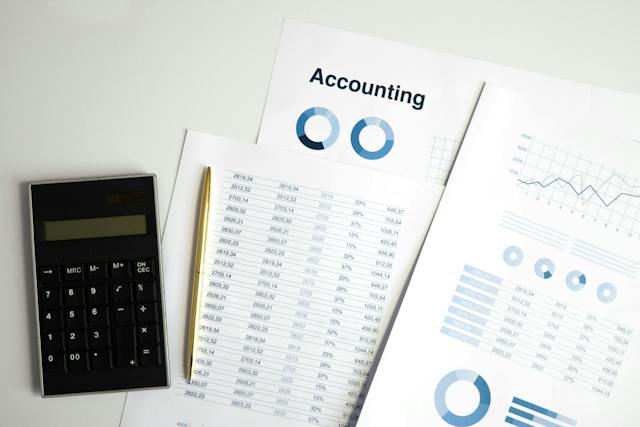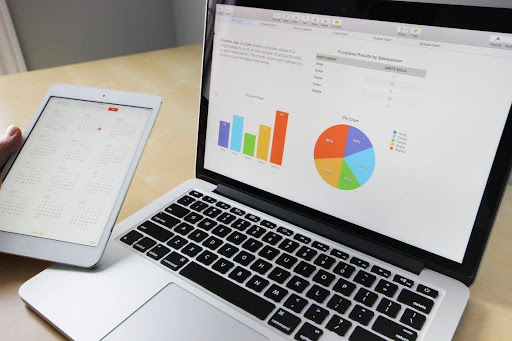The Role of Modern Technology in Accounting: Automation, Data Analysis, and More

Contents
What is the role of technology in accounting? This question implies the central role of technology in modern accounting. Today, accountants require technology for routine tasks and more complex functions. Accounting technology also enables professionals to work from virtually anywhere.
With the advent of accounting information technology like cloud-based systems, robo-advisors, and blockchain, accountants no longer need to sift through endless records. They can analyze accounting information and generate accurate records at the click of a button.
Technology in accounting industry comes as installable software, software as a service, or cloud-based solutions. Yet many do not appreciate what these accounting technologies can help them achieve. It is mainly because they do not understand how good accounting technologies have become. This article explains the role of modern technology in accounting. Read on.
1. Automation
One of the roles of technology in accounting is automating routine tasks and eliminating human intervention. For example, new technology in accounting is helpful in automatically generating or scanning invoices, detecting variations in financial records, and responding to vendor inquiries.
Instructively, the digital transformation in accounting has reduced the time accountants spend on repetitive processes like manual data entry and decreased the risk of human error.
The latest technology in accounting is powered by artificial intelligence (AI). A typical AI system engages in self-learning to imitate human thought and actions. Accountants can use the technology to aggregate and break down large quantities of data.
Additionally, AI systems like ChatGPT automate repetitive tasks like filing tax returns, data entry, etc., saving precious time. Accountants can then focus on tasks that require creativity and critical thinking.
2. Data Analysis
Accounting information technology is also useful in analyzing complex data and identifying patterns in complex data sets. Professionals such as accountants can gather useful insights for formulating business strategies and making data-driven decisions.
Machine learning creates algorithmic models that automatically analyze large volumes of data. The models autonomously learn from experience and continually refine their performance with time. Thus, accountants can collect, process, and manage large data sets that humans cannot analyze manually.
Using accounting information technology, professionals can quickly analyze numerous financial transactions and make forecasts using real-time data. Machine learning models can also detect fraudulent financial statements, helping improve integrity in the accounting professional.
Businesses can make informed decisions and respond swiftly to changing financial fortunes. Modern technology in accounting has many applications and can provide accountants with the information they need to carry out the following:
Advising Clients
New technology in accounting makes it possible for professional accountants to assess client data and offer personalized financial advice. They present complex data as simple, easy-to-understand information.
Problem-Solving
Technology in accounting can reveal the underlying factors in seemingly complex business problems. With the right IT for accountants, it’s possible to formulate effective solutions.
Risk Assessment
Professional accountants can use accounting information technology to predict the potential outcomes of some decisions. Hence, they can mitigate risks through timely interventions.
Performance Monitoring
It’s impossible to divorce accounting and technology. That’s because of the role of accounting information technology in evaluating key performance indicators on employee productivity.
Forecasting
Professionals can use accounting technology to predict future financial trends for a business. Organizations can use data from the past to predict future expenditures, create accurate budgets, and estimate sales. Thus, the technologies used in accounting can help improve an organization's performance.
3. Data Presentation and Visualization
 Professionals use technology in accounting to present or display accounting in the form of graphs, charts, maps, etc. By presenting data in visual form, the technology for accounting firms makes it easy to evaluate information, identify patterns, and spot the unusual in a data set.
Professionals use technology in accounting to present or display accounting in the form of graphs, charts, maps, etc. By presenting data in visual form, the technology for accounting firms makes it easy to evaluate information, identify patterns, and spot the unusual in a data set.
The accounting technologies for presenting data visually include Excel and Tableau. With this kind of technology for accounting firms, it is possible to make data more accessible to broad-based audiences. Using software such as Basil accountants can share the information with clients, managers, employees, and other stakeholders.
4. Cloud-Based Data Storage
The digital transformation in accounting has shifted from on-device data storage to cloud-based solutions. Instead of installing software on a device, accountants rely on cloud-based solutions.
With this kind of accounting information technology, storing data on third-party servers is possible. Accountants access the applications via web browsers. Once entered into the application, the accounting data is automatically backed up on the server.
This technology trend in accounting has several advantages. It enables companies to save money. Instead of purchasing and installing full software, they only pay a subscription fee to use the application.
Additionally, they do not have to employ teams to maintain the system. They can scale up or down based on the dynamic needs of the business. Accountants can also access cloud-based platforms from any location. They can collaborate with remote teams and send digital invoices to their clients.
5. Day-to-Day Accounting Functions
The main role of technology in accounting is to enable professionals to undertake day-to-day office functions. Examples of such software include Basil and Qbox. These accounting technologies help users perform various tasks, including budgeting, inventory management, payroll processing, paying taxes, recording financial transactions, and generating financial statements.
Whether on-device or cloud-based, accounting technologies eliminate the need for manual bookkeeping, and businesses have complete control over their financial records. The best technology for accounting firms also improves data accuracy and keeps records secure.
6. Real-Time Financial Reporting
Traditionally, businesses had to prepare quarterly, semi-annually, or annual financial reports. Of course, many businesses still do that. However, using accounting information technology, businesses can generate financial reports whenever they wish to.
The digital transformation in accounting also allows auditors to access figures on the go. They can make quick judgments and advise businesses at nearly any time. Technology allows the fast and accurate delivery of financial information.
7. Enhancing Stakeholder Collaboration
Service providers can collaborate more closely with businesses through accounting information technology. Thus, using technology in accounting can lead to better decision-making and more precise financial planning. Business owners do not need to meet service providers face-to-face. Through chat and email integration, they can carry out their business virtually.
For example, using the Basil Practice Management, stakeholders can collaborate seamlessly with their team and clients. Basil allows stakeholders to collaborate through a built-in e-signature, bank-level security, file storage and management, and branded client portals.
Basil Practice Management is an all-in-one platform that enables accountants to collaborate with clients more affordably and efficiently. It is refreshingly simple and does not require training on how to use it.
8. Keeping Financial Information Securely
With the increasing use of cloud-based technology in accounting, there is a need to keep the related information safe. That is where cybersecurity comes in. It involves protecting internet-connected accounting systems from attacks that could lead to the loss or unauthorized access to sensitive information.
Using accounting information technology, businesses can implement measures to prevent fraud and leakage of sensitive information. After all, businesses that utilize cloud-based systems could expose themselves to attacks by cybercriminals.
When using technology in accounting, businesses should be careful not to risk losing sensitive information to criminals. Luckily, most online-based accounting systems have implemented data encryption, two-factor authentication, and periodic software updates to secure financial information and prevent attacks.
Additionally, organizations can comply with government regulations by implementing stringent cybersecurity measures. Thus, organizations can avoid costly penalties when caught on the wrong side of the law.
The Bottom Line
The digital transformation in accounting seems unstoppable. Besides automatically capturing information from documents, accounting systems analyze large volumes of data and generate financial reports in real-time.
These accounting technologies relieve humans of needing to sift through many manual records. Professionals can use them to create financial reports more frequently, unlike before when they could produce quarterly, semi-annual, or annual reports.
Additionally, IT for accountants is based on artificial intelligence and machine learning. They can use data from the past to make accurate forecasts. Thus, they are useful in budgeting and profit forecasting.
Therefore, it is no longer possible to ignore the need for new technology in accounting. With the growing need for stakeholder collaboration, platforms like Basil Practice Management can no longer be ignored. All CPAs, accountants, and tax professionals should make it home. Try Basil Practice Management for Accountants for 15-Free with a personalized demo buy a product expert book today.